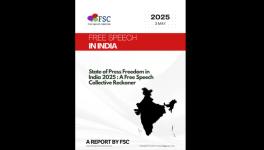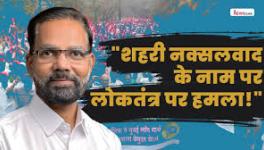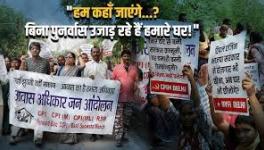After Kashmir’s Ban on Books, Librarians are on Tightrope

On august 5, 2025, the Jammu & Kashmir Home Department issued a notification banning 25 books. The order was justified on grounds that the works propagate “false narratives” and “secessionist sentiment.” This was not an obscure list. It included Arundhati Roy’s Azadi (2020), journalist Anuradha Bhasin’s A Dismantled State (2022), constitutional scholar A.G. Noorani’s The Kashmir Dispute (2013), and Australian political scientist Christopher Snedden’s Independent Kashmir (2021).
The message from the administration is clear: certain perspectives will not be allowed circulation in the public domain. Yet banning a book rarely eliminates its ideas. Instead, censorship often heightens curiosity, drives reading underground, and deprives citizens of the chance to interrogate complex realities. In the context of Jammu & Kashmir—already a site of contested narratives and silenced voices—the consequences are profound.
India’s long tryst with censorship
India has a long history of censoring books, pamphlets, and periodicals. Colonial authorities enacted the Indian Press Act, 1910, to suppress material considered seditious or likely to excite disaffection against the Crown. Papers like Bal Gangadhar Tilak’s Kesari and The Maratha frequently faced prosecution.
The message from the administration is clear: certain perspectives will not be allowed circulation in the public domain.
Independence in 1947 did not bring an end to state censorship. The newly adopted Constitution recognised freedom of speech and expression under Article 19(1)(a) but immediately placed “reasonable restrictions” under Article 19(2)—covering public order, morality, security of the State, and relations with foreign powers. These restrictions have since provided legal scaffolding for book bans. Section 95 of the Code of Criminal Procedure—now retained as Section 95 of the Bharatiya Nagarik Suraksha Sanhita (BNSS), 2023—allows governments to forfeit any publication deemed prejudicial to the State or public harmony.
This provision has been invoked repeatedly. Salman Rushdie’s The Satanic Verses was banned in 1988 following protests. Perumal Murugan, a Tamil novelist, was driven to declare himself “dead as a writer” after his works were attacked. Wendy Doniger’s The Hindus: An Alternative History was withdrawn under legal pressure in 2014. These episodes highlight how censorship often bends to political or social pressure, rather than standing on constitutional principle.
The current ban in context
The August 5 order claims to act as a preventive measure in a fragile region. Yet history suggests bans seldom succeed in calming disquiet. Instead, they deprive students, researchers, and ordinary citizens of access to serious scholarship. Noorani’s The Kashmir Dispute or Bhasin’s A Dismantled State are not incendiary pamphlets; they are serious works of law, history, and journalism. To remove them from circulation is to deny the public the tools to critically evaluate the issues that shape their lives.
For young people in Kashmir—already living in an environment where internet shutdowns and restrictions on journalism are frequent—the ban represents another narrowing of intellectual space. At a time when higher education is supposed to nurture critical thinking, these orders reinforce silence.
The librarian’s tightrope
Librarians are now drawn directly into this conflict. The notification was also marked to the Director of Libraries, J&K, raising the question: are these books to be removed from public and academic libraries across the region?
Librarians face a stark dilemma. By law, they must comply—removing banned titles from shelves, halting circulation, and updating catalogues. But librarianship is also guided by international professional codes, such as the IFLA Code of Ethics for Librarians and Other Information Workers, which stresses intellectual freedom, equitable access, and preservation of cultural memory. In effect, librarians are asked to silence voices when their calling is to amplify them.
How libraries have responded before
History shows that librarians have found quiet ways to balance law with duty. During the Emergency (1975–77), when political dissent was censored, several public and university libraries discreetly retained censored newspapers, pamphlets, and books in “closed collections.” These were not accessible for general borrowing but were catalogued and stored. Decades later, these archives are indispensable to historians.
During the Emergency (1975–77), when political dissent was censored, several public and university libraries discreetly retained censored newspapers, pamphlets, and books in “closed collections.”
Similarly, when regional bans were imposed on specific works, libraries in other parts of the country often preserved copies, making them available for legitimate academic research. Such acts of professional stewardship ensured that while the letter of the law was followed, the spirit of knowledge preservation was not abandoned.
Lessons from abroad
Globally, professional library associations have taken strong positions against censorship. The American Library Association (‘ALA’), through its Office for Intellectual Freedom, documents every challenge to a book and provides legal guidance to libraries. Since 1982, its Banned Books Week has turned censorship into an occasion for public dialogue—through exhibitions, author talks, and campaigns that remind citizens why freedom to read matters.
Civil society groups such as PEN America also track and challenge bans, framing them as attacks on democratic culture. These models stress that censorship should not be met with silence. Even when bans are legally enforceable, their implications must be discussed openly so that citizens understand what is at stake.
What Indian libraries can do
India’s legal framework differs from the U.S., but librarians here still have room to act responsibly. They can:
-
Preserve withdrawn works in restricted archives, ensuring they remain available to researchers when permitted by law.
-
Guide readers to alternative resources that address similar themes, so learning is not entirely cut off.
-
Document bans systematically archiving the notifications, correspondence, and public reactions for future reference.
-
Educate the public about censorship—not in defiance of the law, but as a civic responsibility, situating each ban in historical and constitutional context. In doing so, librarians safeguard memory while avoiding legal jeopardy.
Humanising the ban
It is easy to treat banned books as abstract controversies. But each suppressed title represents the labour of an author, the voice of a community, or the painstaking research of a scholar. To erase those books from shelves is to erase perspectives from the democratic conversation.
For librarians, the effect is personal. They are not just custodians of paper and ink, but facilitators of understanding. When compelled to remove a book, their role shifts: they must help readers understand the absence, provide context, and preserve the silenced voices until they can safely return.
Why this matters for democracy
Censorship debates will not vanish from India. But the way a democracy responds to difficult books is a test of its maturity. A government confident in its legitimacy does not fear words; it counters them with argument. Each ban chips away at Article 19 freedoms, narrowing public discourse in ways that cannot easily be reversed.
Librarians, though often invisible, are frontline actors in this struggle. By quietly preserving knowledge, curating lawful alternatives, and documenting every act of erasure, they defend democracy’s memory against forced amnesia.
Books may be banned, but they need not be forgotten. So long as libraries endure, the silenced page can one day be read again.
Siddu Huded is Assistant Librarian at the National Law School of India University, Bengaluru. The views are personal.
Courtesy: The Leaflet
Get the latest reports & analysis with people's perspective on Protests, movements & deep analytical videos, discussions of the current affairs in your Telegram app. Subscribe to NewsClick's Telegram channel & get Real-Time updates on stories, as they get published on our website.
























